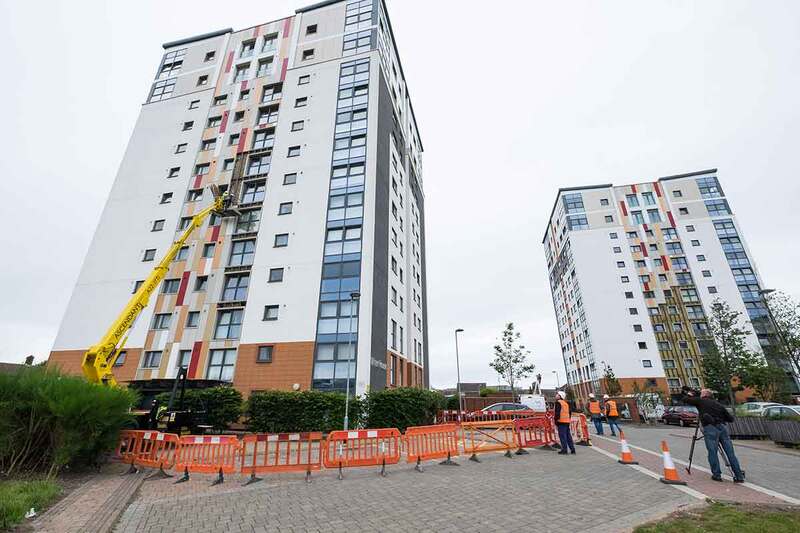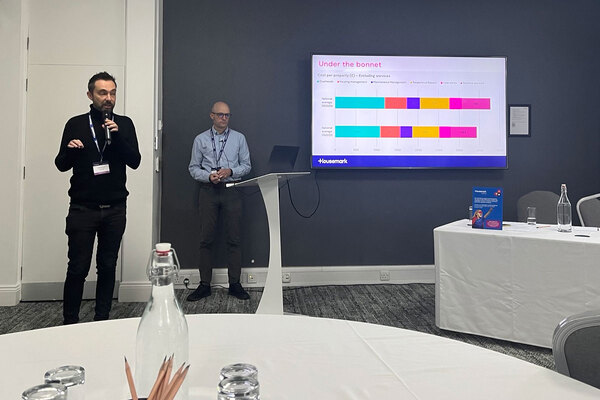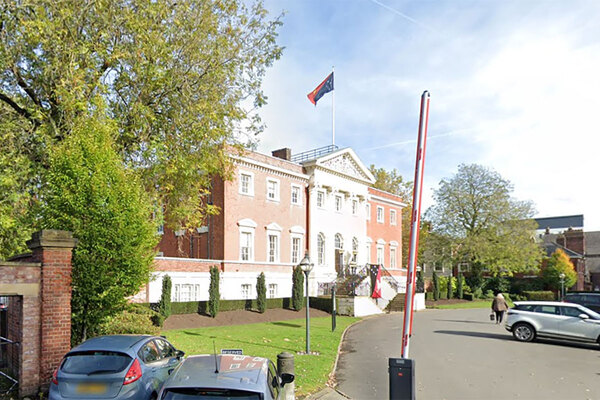You are viewing 1 of your 1 free articles
The Week in Housing: scale of remediation laid bare and children in temporary accommodation inquiry begins
The Week in Housing is our weekly newsletter, rounding up the most important headlines for housing professionals. Sign up below to get it direct to your inbox every Friday

Good afternoon.
The week started with a sobering reminder of the remediation challenge facing the sector. The spending watchdog called on the government to set milestones for cladding remediation as it revealed that works will not be complete until at least 2035 and will cost £16.6bn.
The National Audit Office believes the milestones are needed to ensure the 2035 estimated end target can be met, and pointed out where there are still gaps in data collection, pace and transparency, and funding.
Following this report, Inside Housing revealed that Camden Council had successfully defended an improvement notice it made against a building owner to tackle unsafe cladding.
At the same time, plans have been submitted to redevelop the site of a tower block owned by Clarion that was evacuated due to safety concerns.
These concerns were not cladding related, however, and were instead due to the large panel system (LPS) style of construction – where large slabs of prefabricated concrete are bolted together.
This system became notorious following the Ronan Point disaster, an east London tower block which partially collapsed in the 1960s.
The first evidence session into the issue of children living in temporary accommodation heard how landlords are switching their homes to this tenure because they can earn higher rents.
MPs on the cross-party Housing, Communities and Local Government Committee were told that of the more than 150,000 children currently living in temporary accommodation in England, over 60% of households with children have been in it for two years or more.
The inquiry continues as one London council revealed it will no longer store people’s belongings while they are in temporary accommodation, unless in “exceptional” circumstances.
One way the government could alleviate this crisis would be to increase Local Housing Allowance (LHA) rates, which set the amount of housing benefit private renters can receive.
This would allow more households to afford their rent in the private rented sector, meaning they would be less at risk of homelessness and in need of temporary accommodation.
The Labour government has come under criticism from leading homelessness charities over its “extremely disappointing” failure to unfreeze this housing benefit in last week’s Budget.
It estimates that a freeze next year will leave private renters who get housing benefits £243 worse off per year on average.
A discrepancy occurred in the English regulator’s new regime. Newham Council achieved the highest tenant satisfaction measure (TSM) score of all London local authorities in 2023-24, despite being the first landlord to receive a C4 grade from the Regulator of Social Housing (RSH).
A spokesperson for the RSH told Inside Housing that the TSMs were “only one source of information” it uses to regulate landlords and that it recognised “collection methods can potentially impact on results”.
Another council revealed it was looking at creating a new standalone housing department after it received a C3 grade from the RSH.
A new report by the regulator also revealed a 66% rise in whistleblowing allegations. At the same time, the Housing Ombudsman made nearly 22,000 orders and recommendations last year to force landlords to put things right for residents, a more than threefold year-on-year increase.
At the Homes England Investment Symposium in London on Monday, the chief executive of the government housing agency made a number of interesting comments on temporary accommodation.
He said: “I don’t think investors are wary of this area, if done correctly. If local authorities were there leading the charge on managing the temporary accommodation situation, I think you’d find investors were perfectly happy to support that.”
Peter Denton also explained why Homes England’s master developer with Barratt Redrow and Lloyds Bank will not get access to the agency’s existing sites.
At the same event, a senior official outlined three things the government has to fix as part of its upcoming 10-year housing plan.
One thing the plan must do is significantly ramp up development if the government is to meet its 1.5 million-home target this parliament.
A new report by Savills this week found that the rate of affordable housebuilding must more than triple to meet need and tackle the housing crisis.
A separate government-commissioned report said the supported housing sector will need to double by 2040 “if current demand and unmet demand is to be met”.
With the sector looking to the next multi-year Spending Review in March for funding and additional certainty to help underpin long-term business plans, a new value for money report from Housemark showed how English housing associations’ average operating margins have increased for the first time in five years.
While margins continue to be strained by existing stock improvements and building safety, merger activity across the sector shows no sign of slowing down.
Bromford and Flagship reported rising half-year revenues, but are facing spending pressures on improving existing homes as they prepare to merge next year.
Two Welsh landlords merged to form a 5,200-home association, and a small north London landlord completed a stock transfer to Watford Community Housing, following a consultation with residents.
Finally, the head of 16,000-home Plymouth Community Homes told Inside Housing why he is developing a new homes standard and how housing associations can be more innovative, and we also published our latest monthly round-up of top-level housing sector appointments.
Have a great weekend.
Stephen Delahunty, news editor, Inside Housing
Editor’s picks: five stories you may have missed
Large landlord seeks contractors for £1bn major national works push
Rate of affordable housebuilding must triple to tackle housing crisis
Kemi Badenoch appoints new shadow housing secretary
New Towns Taskforce seeks views on suitable sites for developments of 10,000+ homes
Finance boss and chief operating officer at 80,000-home landlord to exit
Sign up for our Week in Housing newsletter
Already have an account? Click here to manage your newsletters











